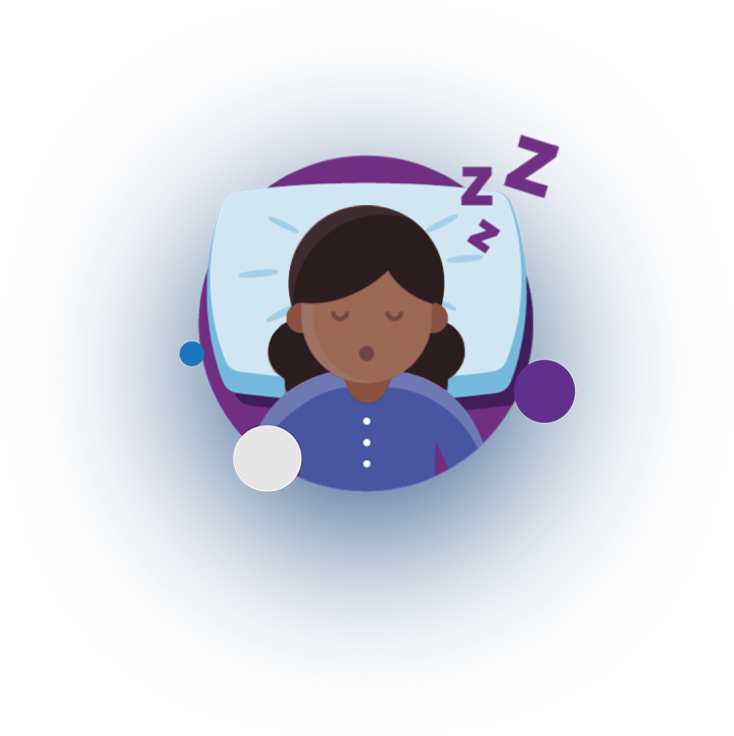Sleep like your life depends on it. Because it does.
Despite most of us saying we’re satisfied with the quantity of our sleep, an even larger majority of us report daytime and nighttime symptoms that suggest many of us still suffer poor sleep quality.1ResMed surveyed 20,069 people over the age of 18 in 12 countries. Fielding was conducted in January 2023 by the Qualtrics fielding platform.

Over 80% of respondents to the 2023 Global Sleep Survey report experiencing symptoms of disruption related to their sleep quality, despite 64% saying they’re satisfied with the quantity of their sleep. Leading symptoms include:
- Mood changes (e.g., depression or irritability) (33%)
- Waking up with a dry mouth or sore throat (30%)
- Difficulty concentrating during the day (30%)
- Excessive daytime sleepiness (29%)
When it comes to sleep, quantity does not equal quality.
In a typical week, respondents around the world report sleeping approximately 7 hours per night. However, 81% reported having symptoms related to poor sleep quality.
- India 82%
- Mexico 87%
- China 81%
- Brazil 84%
- Singapore 81%
- Germany 79%
- US 79%
- France 87%
- So. Korea 85%
- Australia 81%
- Japan 60%
- UK 82%
While more than 80% of respondents reported symptoms of disruption that affect their sleep quality, which could indicate a sleep disorder, one-third (33%) said they haven’t been tested for sleep apnea or sought medical help for other sleep conditions because they do not think they have sleep-related medical conditions.
Leading reasons for not getting tested or otherwise taking the next step to address potential sleep issues:
%
don’t know how to get started
%
%
%
Are you at risk for sleep apnea?
Untreated sleep apnea is linked to serious health problems like diabetes and heart disease. But the good news is that it’s treatable. Take this free, one-minute quiz to see if you may be at risk.

More sleep stats.
%
of respondents report anxiety and depression are keeping them awake at night
%
of women report usually waking up with a negative feeling in the morning
%
%
of Millennials report using a sleep tracker, making them more likely to consult with sleep tracking technology compared to other generations
What’s keeping people up at night?
33% of respondents said anxiety/depression is one thing that keeps them up at night:
By Country
- Brazil 46%
- US 45%
- Australia 42%
- UK 42%
- China 39%
- France 37%
- Mexico 36%
- Singapore 30%
- South Korea 25%
- Japan 24%
- India 22%
- Germany 21%
By generation
- Millenials (27-42) 35%
- Gen Z (18-26) 34%
- Gen X (43-58) 31%
- Boomers (59-77) 22%
- Silent (78-95) 17%
Other leading self-reported factors:
%
Work-related concerns
%
%
%
%
Screens / electronic devices
Listen to the Awaken Your Best podcast series on your favorite platform
Resources for better sleep.

Why am I always tired?

The effects of sleep deprivation on your health.

How to sleep without snoring.

How well are you really sleeping?
